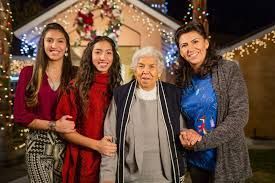Are You Protected From the Flu?
Last year the flu season was one of the deadliest in decades. The Centers for Disease Control and Prevention (CDC) reports influenza killed 80,000 people. Millions more became sick from the respiratory virus and almost one million people were hospitalized. It’s a fact that older adults are at the greatest risk of serious complications from the flu. This is because seniors often already have weakened immune systems from other medical conditions and chronic illnesses.
Symptoms include fever, cough, sore throat, runny or stuffy nose, body aches, headache, chills and fatigue. Some people also may have vomiting and diarrhea. You can have the flu and have respiratory symptoms without a fever.
Flu Prevention
- Get the vaccine. CDC recommends a yearly flu vaccine as the first and most important step in protecting against the virus. Furthermore, the flu shot doesn’t just help you avoid the flu. It also minimizes your chances of secondary complications from the virus which include pneumonia, stroke, and heart attack. People 65 years and older should get a flu shot and not a nasal spray vaccine. There are regular flu shots that are approved for use in people 65 and older and there also are two vaccines designed specifically for seniors: High-Dose Flu Vaccine and Adjuvanted Flu Vaccine. Ask your doctor which one is best for you.
- Take action. A few simple measures like washing your hands throughout the day and using a tissue to touch your face with your hands can help reduce your chances of getting the flu. Try to avoid contact with anyone who shows any signs of a cold or flu. If you think you have the flu stay home for at least 24 hours after your fever is gone (except to receive medical care).
- Use antiviral drugs. Call your doctor once you develop symptoms of the flu. A physician can prescribe an antiviral drug which can help alleviate the severity of the flu and possibly avoid a hospital stay. These drugs work best when they are stated within 48 hours of getting sick. Antiviral medications are especially important for high-risk individuals like older adults.



